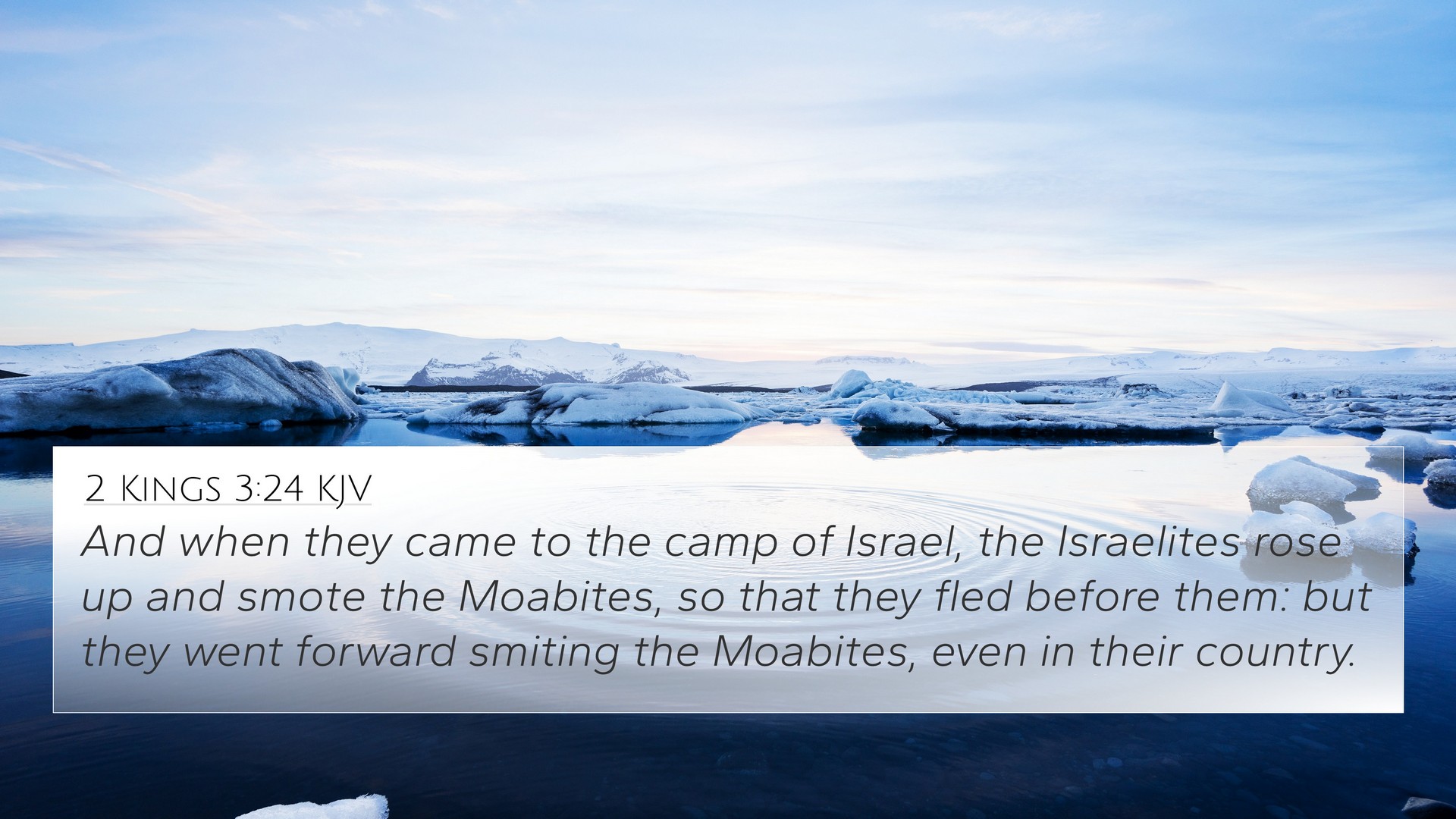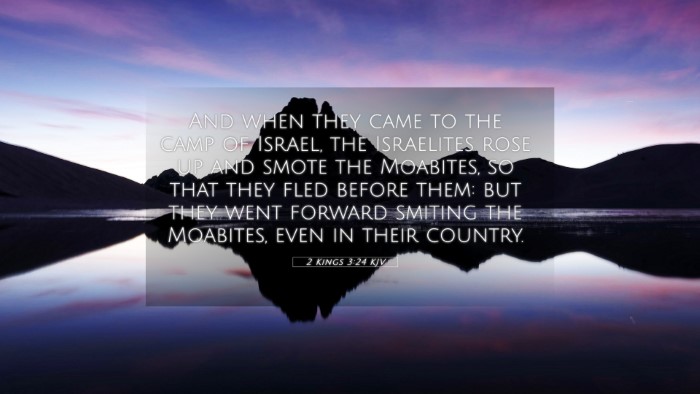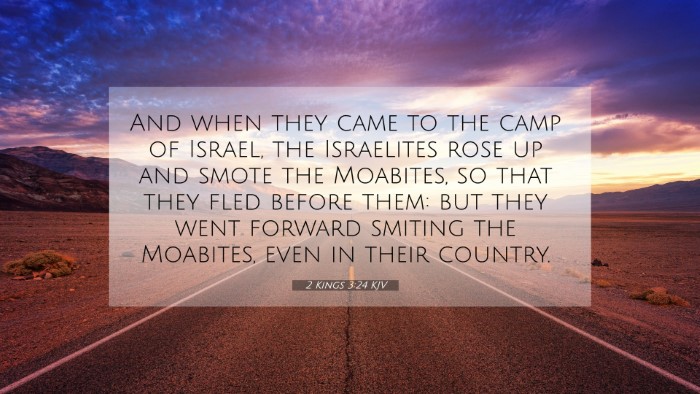Understanding 2 Kings 3:24
2 Kings 3:24 states: "But when they came to the camp of Israel, the Israelites rose up and struck down the Moabites. They fled before them, and they went forward into the land, striking down the Moabites." This verse captures a pivotal moment during a conflict between Israel and Moab, revealing themes of divine intervention, military strategy, and the consequences of faithfulness to God.
Contextual Background
This scripture occurs in a narrative about King Jehoram of Israel, who, alongside King Jehoshaphat of Judah and the king of Edom, strived to defeat Moab after they rebelled. The alliance's visit to the prophet Elisha highlights the necessity of divine guidance, which can be traced back through historical conflicts throughout the Old Testament.
Analysis of Key Themes
- Divine Intervention: The success of the Israelites in battle is often seen as a consequence of God’s influence, emphasizing the role of divine support in human endeavors.
- Faithfulness and Judgment: The actions of the Moabites, rooted in idolatry, provoke God’s judgment through Israel's military campaign.
- Military Strategy: The verse illustrates effective military tactics by portraying the Israelites' organized response to the Moabite threat.
Commentary Insights
According to Matthew Henry’s Commentary, this passage emphasizes the power of the Lord who helps His people in time of need, showcasing His ability to turn the tide in battle through faith and obedience. Similarly, Albert Barnes notes that this event serves as a reminder of the consequences faced by nations that defy God's commands, drawing parallels with historical acts of divine retribution. Adam Clarke further elaborates on the narrative’s relevance, suggesting that the Israelites' strength came not solely from their military might but from their reliance upon God’s guidance and support.
Bible Verse Cross-References
This verse connects with several others throughout the Scriptures, enriching our understanding and showcasing thematic Bible verse connections:
- 1 Samuel 17:47: "And all this assembly shall know that the Lord saveth not with sword and spear: for the battle is the Lord's...". This verse emphasizes reliance on God for victory.
- Psalm 20:7: "Some trust in chariots and some in horses, but we trust in the name of the Lord our God." This highlights faith over military strength.
- Isaiah 31:1: “Woe to those who go down to Egypt for help and rely on horses... but do not look to the Holy One of Israel, or consult the Lord!” This warns against seeking help in earthly power rather than divine assistance.
- 2 Chronicles 20:15: "...for the battle is not yours, but God's." This reiterates God’s paramount role in conflict resolution.
- Joshua 1:9: "Have I not commanded you? Be strong and courageous. Do not be frightened, and do not be dismayed, for the Lord your God is with you wherever you go." This underscores the assurance of God's presence in difficult times.
- Romans 8:31: “What then shall we say to these things? If God is for us, who can be against us?” A New Testament affirmation of God’s protection and support.
- Matthew 28:18: "All authority in heaven and on earth has been given to me." This emphasizes Christ's ultimate authority in spiritual warfare.
Conclusion
The narrative of 2 Kings 3:24 illustrates the interrelation between human action and divine will in the context of Old Testament conflicts. Through comparative Bible verse analysis, we can see a cohesive theme illustrating that true victory is granted by God. By studying how these verses are linked and how the character of God is revealed, believers can deepen their understanding and explore effective tools for Bible cross-referencing. This engagement with Scripture not only enhances personal study but also prepares individuals for teaching and sharing God's Word.
Further Reflection
As you reflect on 2 Kings 3:24, consider the importance of divine guidance in your own life. What battles are you facing that may require trusting in God’s intervention? Use this verse, and its connections with others, to build a robust faith foundation that underscores God’s sovereignty in all situations.





